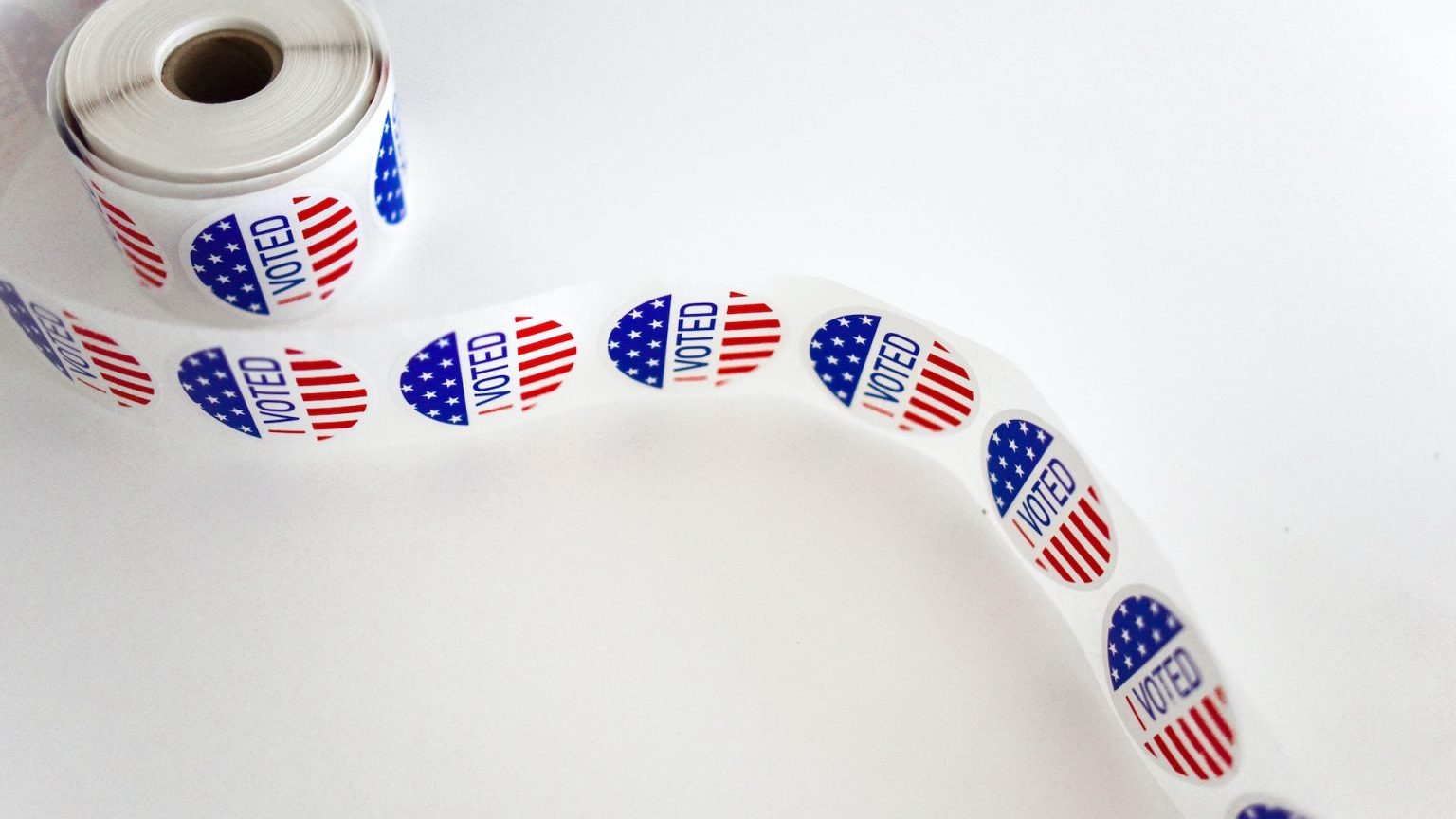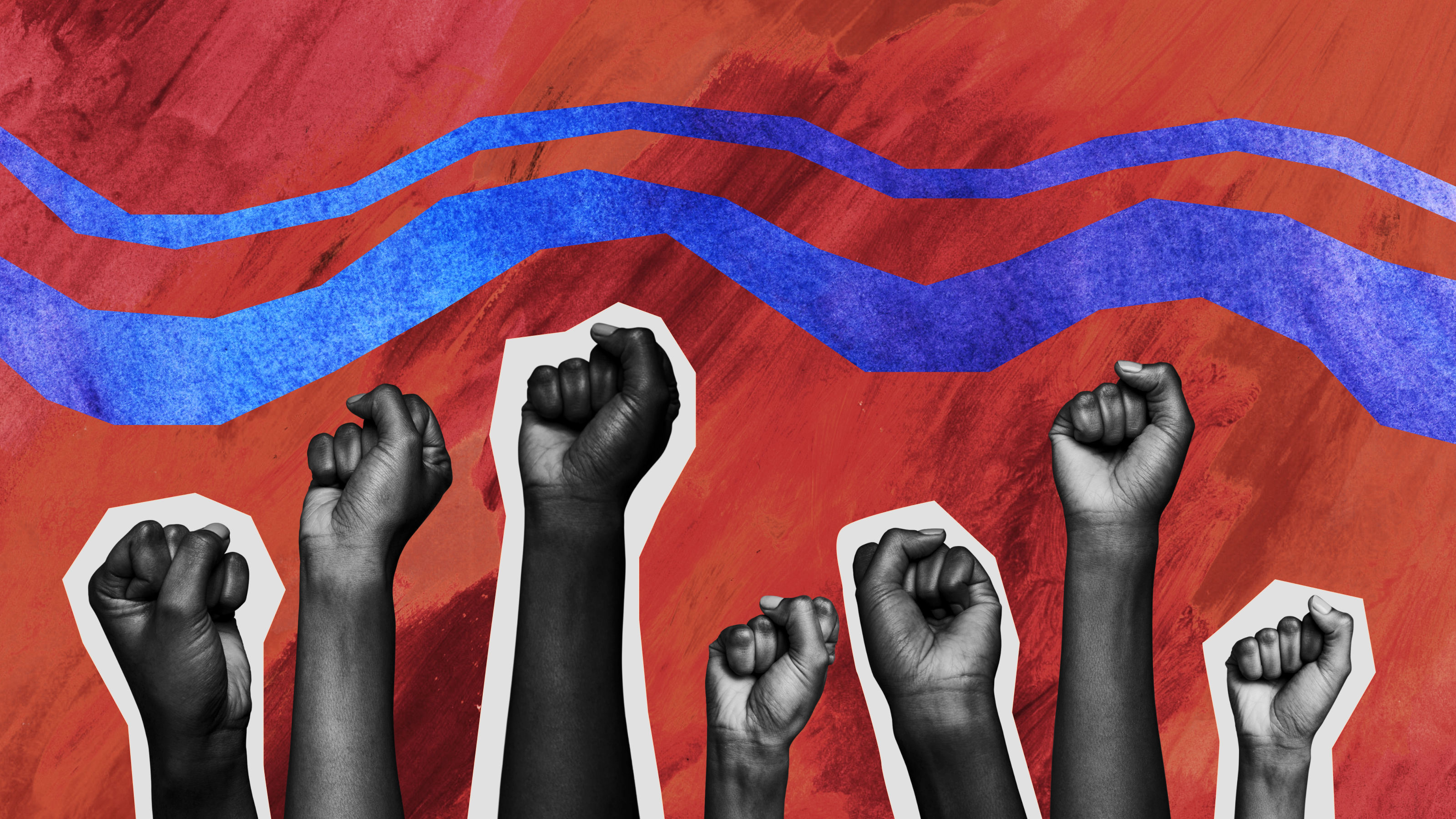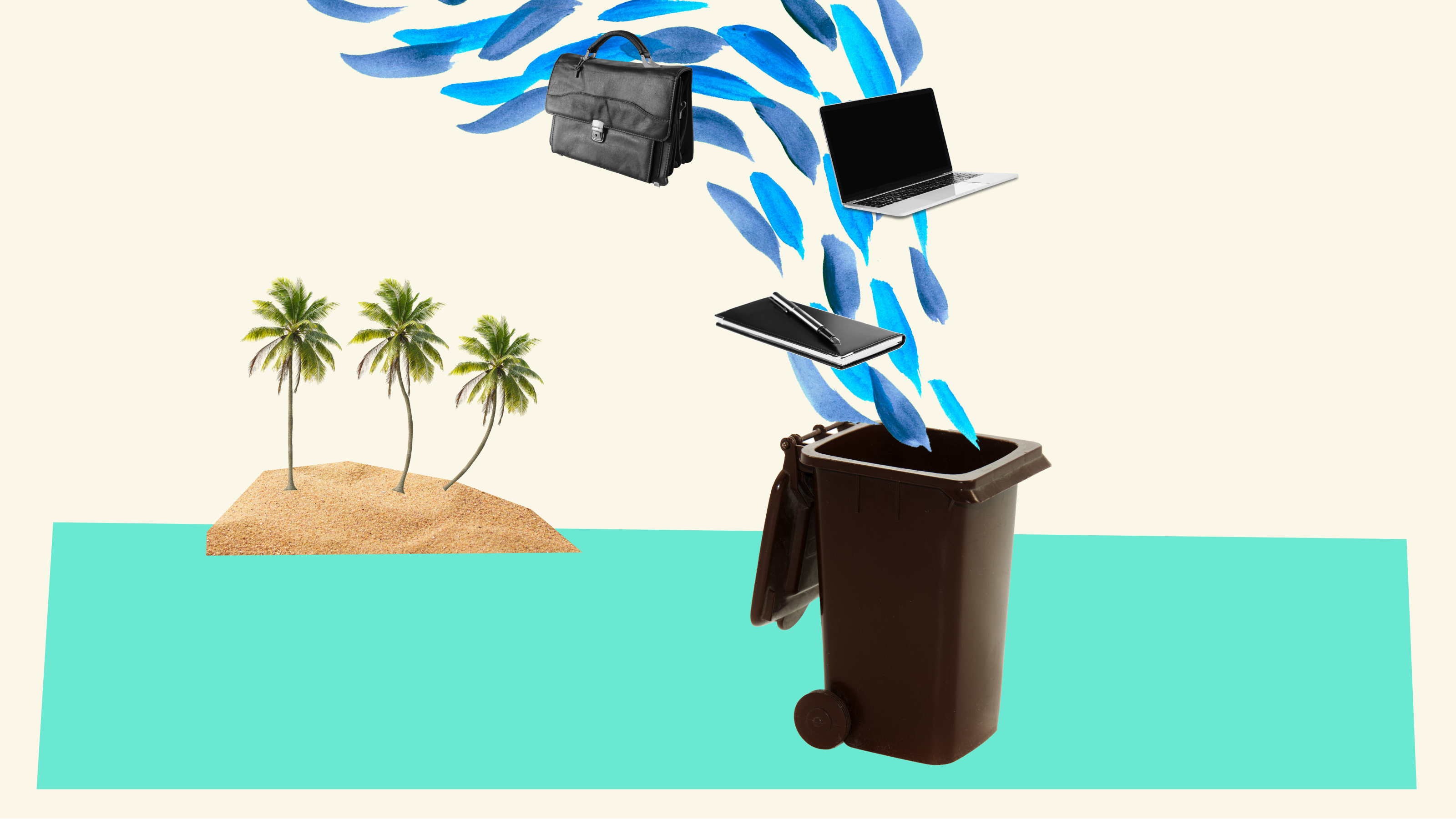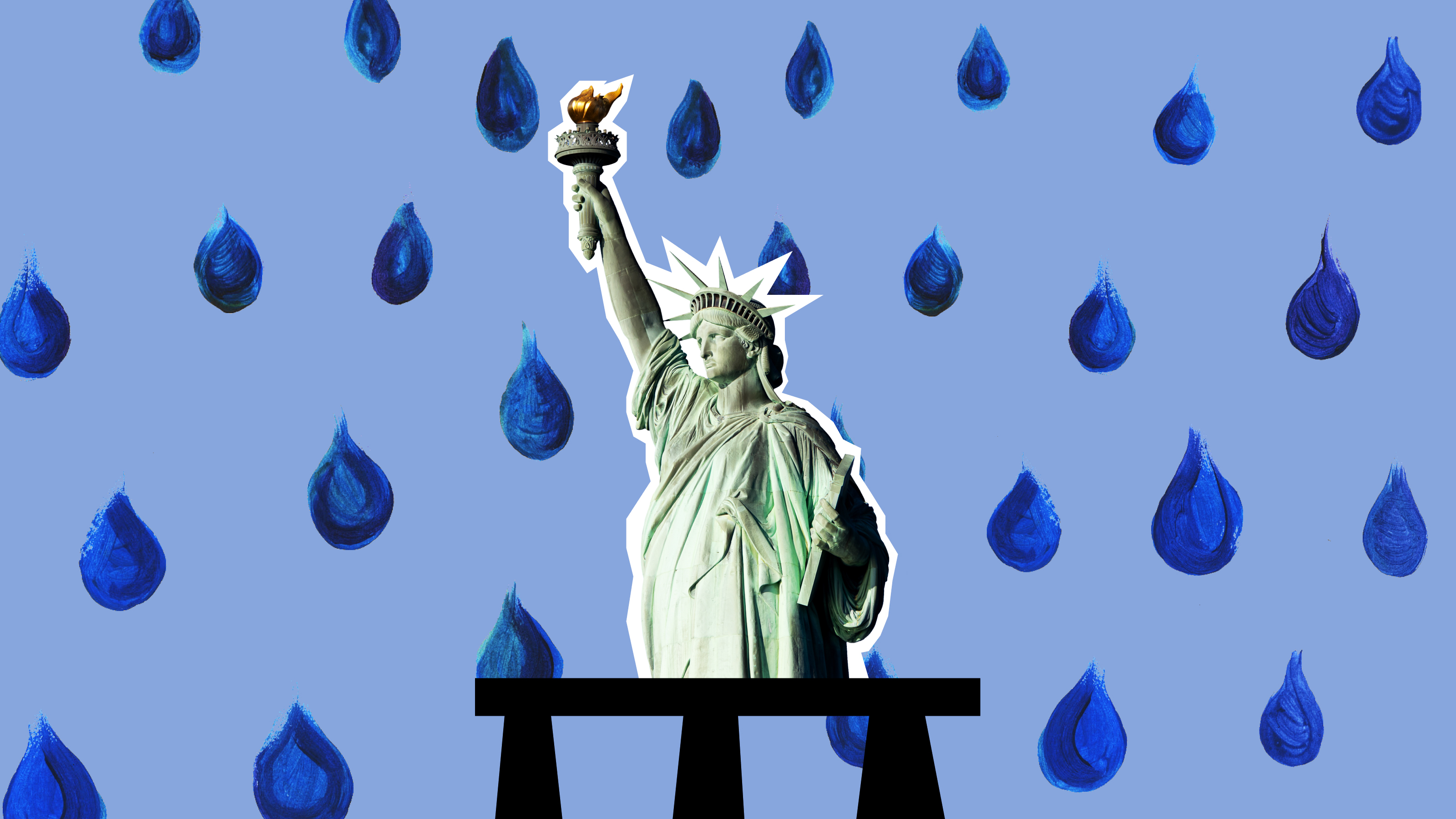5 reasons the president has little control over the economy

- Americans tend to credit or blame the president for economic outcomes depending on the president's political party.
- Not only is this unfair, it is unrooted from reality. There are at least five major factors that limit a president’s ability to “handle” the national economy.
- It is more useful to perceive the president as a human roulette ball rather than a fantastical economic puppeteer.
Listen to a president’s opponents, or supporters, for even just a few minutes and, in all likelihood, you will hear some reference to the national economy. At first glance, this seems reasonable; perhaps even refreshingly non-partisan. After all, the economy offers an objective, fair-game metric by which we can evaluate a president’s performance, right?
Unfortunately, no. A host of biases and partisan motivations make it nearly impossible to use “the economy” as anything resembling an objective standard. But, even more fundamentally, and in spite of what many Americans believe, several basic facts reveal the limited influence that a president actually wields over the national economy at any given time.
5 reasons the president has little control
There are at least five factors that limit a president’s ability to “handle” the national economy.
First, federal government spending represents a relatively modest share of the economy. Though it ticked up several percentage points since the onset of the COVID pandemic, for the past 50 years government spending has only represented about 20% of gross domestic product. To put this in perspective, the federal government exercises, roughly speaking, about as much control as a 100-pound person wearing 400 pounds of clothing.
Second, the vast majority of that government spending is on entitlement programs (for example, Social Security and Medicare) and other categories that the president has very little influence upon (like interest on the debt), particularly in the short-term.
Third, the president represents only one branch of government. It is Congress, in fact, that largely wields the “power of the purse,” not the president. Any influence of the president, in other words, will be severely constrained by Congress and the party that wields control over it.
Fourth, policies don’t “work” instantaneously. In a large economy like that of the U.S., any attempt by a president to substantially influence the national economy can take many months, or even years, to actually be felt (if at all). An important implication here is that some aspects of the national economy that we feel now might be due to the efforts of a previous president.
Fifth, many economic indicators that matter in people’s day-to-day lives are influenced by factors well outside the president’s (and Congress’s) direct control. Interest rates are largely the domain of the Federal Reserve, not the president. Gas prices depend much upon factors like global demand, international supply chains, and the Organization of Petroleum Exporting Countries (OPEC). Prices on all sorts of critical items (like housing, food, and clothing) depend on numerous factors outside the president’s control (local supply and demand, the boom-and-bust cycles of the global economy, pandemics, and wars abroad, for example).
Consider unemployment data in the U.S. between 1948 and the present. When we take this bird’s eye view, the boom-and-bust cycle becomes painfully clear: Over time, millions of Americans find work and lose work with remarkable regularity — regardless of which party occupies the White House. Looked at this way, presidents begin to seem less like the wizard behind the economic curtain and more akin to a helpless roulette ball, eagerly hoping to land on black.
Nevertheless, the illusion persists. As former chairman of President Obama’s Council of Economic Advisors has argued, “I think the world vests too much power—certainly in the president, probably in Washington in general—for its influence on the economy, because most all of the economy has nothing to do with the government.”
The president I dislike tanked the economy
Where might this belief in presidential control of the economy come from? One source is partisan media, which credits or blames the president for economic outcomes depending on who is in office. It’s not a surprise, therefore, that many voters only look at one president’s administration and engage in a kind of naïve form of causal inference: If things are better at the end of a term than at the beginning, the president did a good job. However, if a president is unlucky enough to have hit a “bust” period rather than a “boom” period, the president gets the blame.
This tendency among voters resembles the cognitive bias known as the “fundamental attribution error” — blaming the individual is simply far easier than reflecting upon broader external factors at play. When paired with people’s other tendencies to accept simple explanations for complex phenomena and to disproportionately focus on negative information, the notion that economic woes are due to bad decision-making by the president is all too tempting.
But cognitive biases aren’t the only culprits here. Naturally, politicians routinely add fuel to this fictitious fire. Those hoping to attack the president’s party, or who are vying for the presidency themselves, rarely waste any time in connecting bad economic circumstances to the president. Politicians will emphasize negative aspects of the economy if it can make the sitting president look economically incompetent, therein implying that presidents actually exercise substantial control over it. As then-presidential candidate Ronald Reagan famously asked of voters during the end of President Carter’s first term, “Are you better off now than you were four years ago?”
But this is all simply a (politically) convenient untruth: by glossing over the constraints that presidents face, politicians can deploy a stinging line of attack against a sitting president. Conversely, if the economy is doing well, sitting presidents (and their supporters) can and do take ample credit for it, naturally.
Name and blame
My peer-reviewed research on this topic indeed found that citizens generally view the president to have substantial “control” over the economy. Moreover, however much respondents believed presidents control the economy, they tended to believe to an even greater extent that presidents should be held accountable for the economy. An important implication of this finding is that voters may be inclined to hold presidents accountable for the economy more so than they believe the president actually has any control over it. Again, sometimes we just need someone to blame.
Encouragingly, my study also found evidence that becoming aware of real-world constraints reduced these perceptions. In other words, when people become aware of these constraints, perceptions of presidential control over, and accountability for, the economy decrease. Such information can thus bring perceptions of presidential power over the economy closer in line with reality.
Of course, politicians and partisan elites have little reason to emphasize these various constraints. As such, the fiction of the omnipotent economic president remains. In forecasting presidential elections, for example, political scientists continue to incorporate economic measures into their forecasting models — an indication that the economy continues to be reliably predictive of presidential election outcomes.
And yet, whatever the beliefs about presidential control of the economy, there is some scholarly evidence that the economy is beginning to matter less and less for presidential fortunes. This is very likely a byproduct of partisan polarization: as the public becomes more polarized, the economy takes more and more of a backseat to other considerations — namely, whether the president is a Democrat or Republican. (Consider this: Is there any economic scenario in which you or your friends would decide to vote for the other party?)
Does this mean we are, as a country, finally abandoning the myth that the president controls the economy? Probably not. Instead, we are now in an era wherein this myth is selectively invoked when it can benefit one’s own party or harm the other party.
Indeed, partisans often approach the economy through a biased lens. They can exploit, for example, the reality that there is no single metric for what constitutes a “good economy” or a “bad economy”: alternative measures of unemployment; the change in, rather than level of, unemployment; number of job losses; number of jobs created; the rate of economic growth; the rate of inflation; the change in either of these rates; the Index of Consumer Sentiments Index; the performance of the stock market; gas prices; the change in gas prices; interest rates; and so on. With all these metrics available, partisans have a seemingly limitless arsenal of political ammunition at their disposal; all they need is just one of these metrics to help make their party look good, or the other party look bad.
These partisan biases extend beyond the national economy to other issues as well. In a recently published study, my co-author (Ian G. Anson) and I found that, depending on which party occupies the presidency, partisans significantly alter how much they report caring about government deficits and the national debt. Because the president appears to sit at the helm of all things economic, partisans — both Republican and Democrat — are remarkably inclined to downplay the importance of government deficits when it hurts their party, yet heighten the importance of deficits when it can be used to attack a president from the opposing party.
Thus, President Biden’s recent efforts to appease Republicans with proposals to reduce federal budget deficits likely will face an uphill battle. As with how partisans behave when it comes to the national economy, deficits are not being used to objectively evaluate President Biden; rather, government deficits are likely being selectively invoked when it can serve as a convenient line of attack.
Losing the illusion
To be clear, it’s not that presidents have zero influence on the economy. Some programs that presidents push for (for instance, student loan forgiveness, tax cuts, and Medicaid expansion) can have an enormous impact on particular individuals and their families. To take two concrete examples, the Troubled Asset Relief Program (TARP) and the Economic Stimulus Act, both passed under George W. Bush (with the support of a Democratic Congress) during the fearful onset of the Great Recession, had a substantial impact on the economy and, undoubtedly, prevented many Americans from falling into desperate poverty.
But these are unusually large pieces of legislation and, as the above examples illustrate, often still require that the president has cooperation from Congress (hardly a guarantee, as recent history has shown). Again, when taken together with the relatively small share of the economy that is occupied by the federal government, it becomes clear that the amount of control the president alone exercises over the national economy is likely marginal at best at any given time.
Thus, seeing the president as a human roulette ball rather than a fantastical economic puppeteer is an important first step to improving American political discourse. It can potentially keep us much more grounded in reality and allow room for more constructive conversations, even if hardcore partisans continue to selectively indulge the fantasy whenever it suits their aims.





